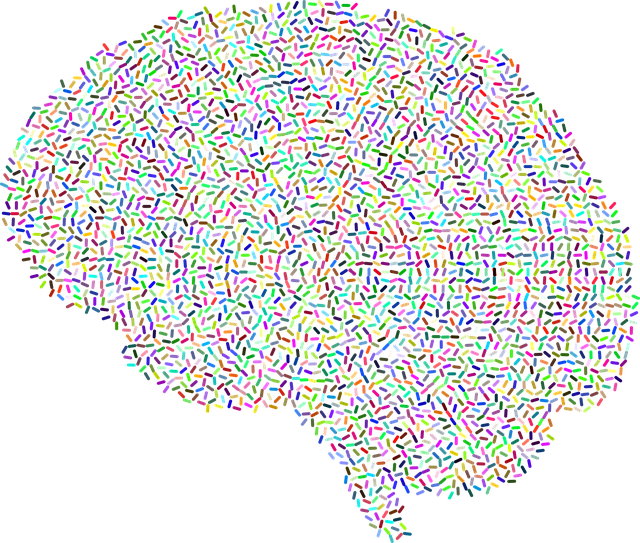Somatic Experiencing (SE) is a therapy focused on trauma resolution and stress management through bodily awareness, combining detailed session documentation with cultural sensitivity. Mental health professionals analyze this data to guide evidence-based practices, inform policy, and develop personalized treatment plans. By integrating advanced techniques like heart rate variability analysis and statistical methods, SE therapy becomes more effective and accessible, promoting resilience building and reducing burnout for both clients and providers. This data-driven approach enhances overall mental wellness outcomes and fosters a supportive society.
Mental health data analysis and interpretation are essential components of modern therapy practices, especially in the context of Somatic Experiencing (SE). This therapeutic approach requires unique data handling due to its focus on bodily sensations and traumatic memories. This article explores key aspects of SE data analysis, highlighting the crucial role mental health professionals play in interpreting complex client information. We discuss effective techniques for understanding somatically-evoked responses and how integrating these insights can enhance therapy outcomes for SE clients.
- Understanding Somatic Experiencing and its Data Requirements
- The Role of Mental Health Professionals in Data Analysis
- Techniques for Interpreting Somatic Experiencing Data
- Integrating Insights to Enhance Therapy Outcomes
Understanding Somatic Experiencing and its Data Requirements

Somatic Experiencing (SE) is a therapy approach that focuses on resolving trauma and stress through a bodily awareness process. It recognizes that emotional and psychological distress can manifest physically, and by accessing and processing these somatic responses, individuals can achieve profound healing and restoration. This unique therapy requires specific data collection methods to capture the intricate relationship between the mind and body.
The practice of SE involves detailed recording of client experiences, including their physical sensations, memories, and emotions during sessions. Mental healthcare professionals trained in SE meticulously document these insights, creating a rich data source for analysis. Understanding cultural sensitivity in mental healthcare is essential when interpreting this data, as it can influence how individuals express and perceive trauma. Moreover, integrating the findings from SE into mental wellness coaching programs and self-care routine development can empower clients to take charge of their mental health, fostering resilience and overall well-being.
The Role of Mental Health Professionals in Data Analysis

Mental health professionals play a pivotal role in data analysis by bringing their clinical expertise to interpret complex information. They are crucial in translating raw data into meaningful insights, especially in understanding the nuances of mental health conditions. These professionals can identify patterns and trends within datasets, which may not be immediately apparent to non-experts. For instance, they can analyze therapy outcomes for Somatic Experiencing, a specific therapeutic approach, and provide valuable guidance on its effectiveness. By evaluating factors such as patient demographics, treatment protocols, and clinical measurements, mental health experts can contribute to evidence-based practices.
Their involvement in data analysis is not limited to clinical settings; they also advocate for Mental Health Policy Analysis and Advocacy, ensuring that policy decisions are informed by the latest research and best practices. Additionally, these professionals can facilitate Crisis Intervention Guidance through data-driven strategies, aiding in early intervention and better management of mental health crises. Even in Community Outreach Program Implementation, their analytical skills help in tailoring programs to meet diverse community needs, fostering more inclusive and effective support systems.
Techniques for Interpreting Somatic Experiencing Data

The interpretation of data from Somatic Experiencing (SE) therapy offers valuable insights into an individual’s mental health journey. SE is a unique approach that focuses on the connection between the body and mind, aiming to heal trauma and reduce symptoms of various mental illnesses. Therapists utilize specialized techniques to analyze physiological responses, such as heart rate variability, skin conductance, and muscle tension, alongside client-reported outcomes. By combining these data sources, practitioners gain a holistic understanding of an individual’s experience during therapy sessions.
Through advanced statistical methods, therapists can identify patterns and correlations that reveal the impact of SE interventions. This enables them to tailor treatment plans, address specific challenges, and ultimately enhance therapeutic outcomes. Moreover, public awareness campaigns development and mental illness stigma reduction efforts can benefit from these data-driven insights, fostering a more informed and supportive society. By integrating such techniques, the field of mental health care advances towards personalized, effective therapy for somatic experiencing, potentially preventing burnout in both clients and therapists, as recognized in the ongoing efforts to improve access to quality care.
Integrating Insights to Enhance Therapy Outcomes

Integrating insights from mental health data analysis is a game-changer in enhancing therapy outcomes, particularly for practices like Somatic Experiencing (SE). By delving into the wealth of information collected during sessions, therapists can tailor interventions to individual needs. For instance, analyzing a client’s Mental Wellness Journaling Exercise Guidance can reveal patterns indicative of specific triggers or stress responses, allowing SE practitioners to focus on targeted body-mind connections.
This approach not only improves the efficiency of therapy but also fosters resilience building. For healthcare providers dealing with burnout prevention strategies, data analysis provides valuable insights into the effectiveness of various therapeutic techniques. Understanding which practices resonate most with clients can lead to enhanced treatment plans, ultimately promoting better mental wellness outcomes and sustaining provider well-being in the long term.
Mental health data analysis and interpretation play a pivotal role in enhancing therapy outcomes, especially for complex conditions like Somatic Experiencing (SE). By understanding SE’s unique data requirements, leveraging mental health professionals’ expertise, employing advanced techniques to interpret somatic data, and integrating these insights into treatment plans, therapists can provide more effective therapy for SE. This integrated approach promises a brighter future for individuals seeking healing and recovery.











